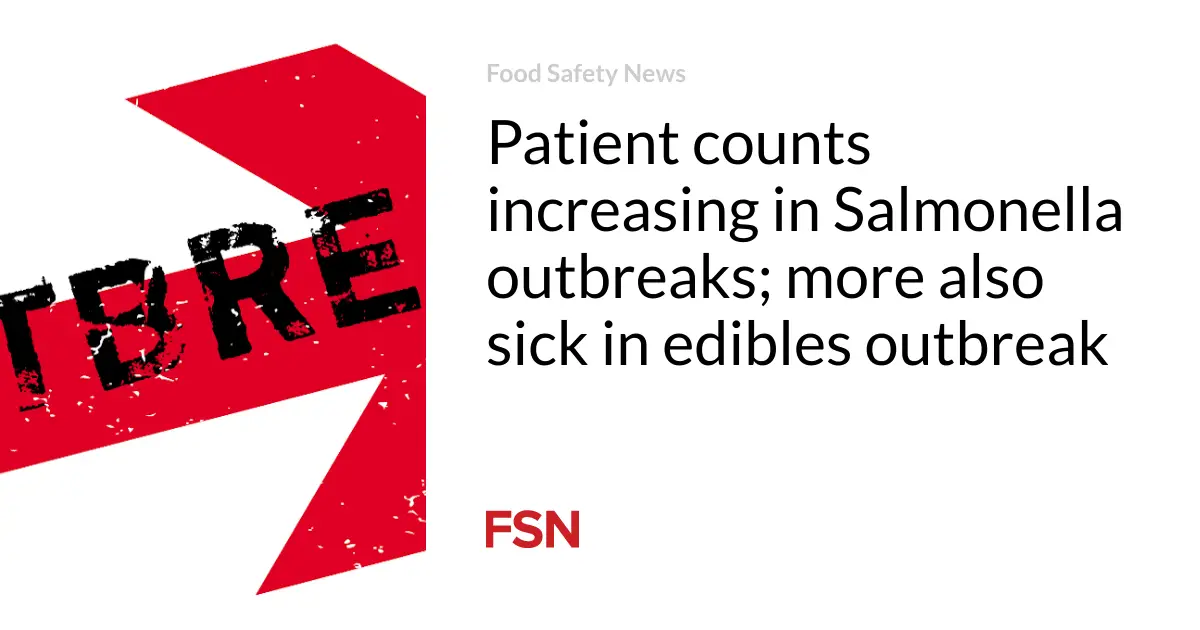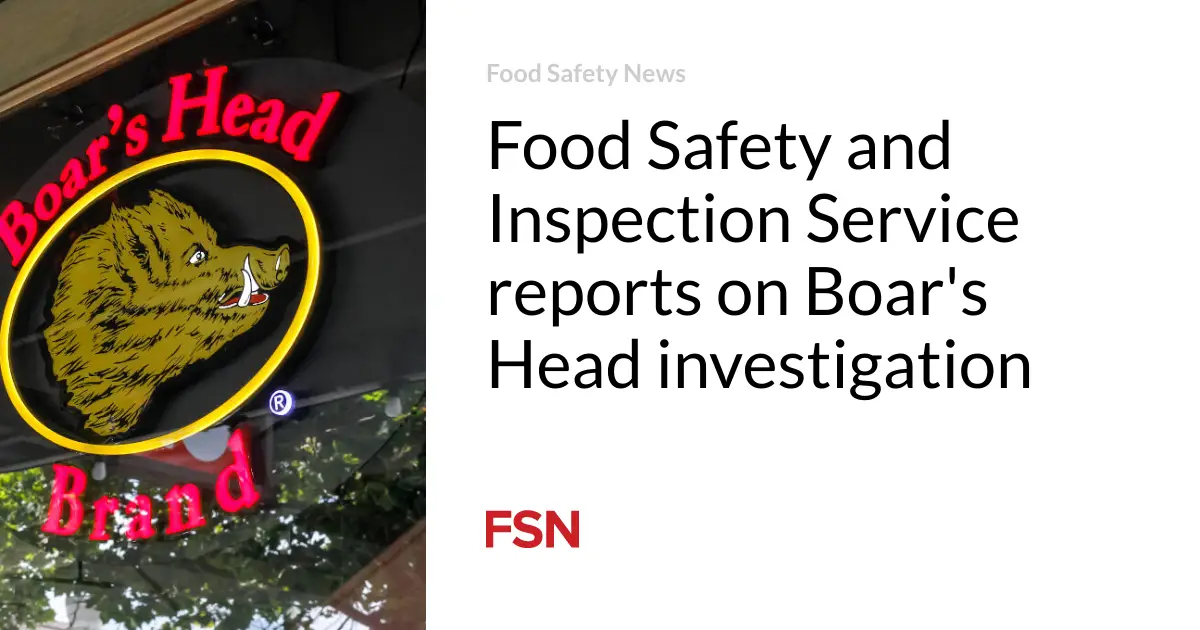
Patient counts in two outbreaks of infections from Salmonella have increased in the past week.
For a Salmonella Irumu outbreak, there are three more patients compared to a week ago, bringing the total to 29. The cause of the outbreak has not yet been determined. The Food and Drug Administration has begun traceback efforts, but the food or foods being traced have not been reported.
In a Salmonella Typhimurium outbreak, there are seven more patients compared to a week ago, bringing the total to 87. The cause of the outbreak has not yet been determined. The FDA has begun traceback efforts, but the food or foods being traced have not been reported.
Other outbreak news
For an outbreak of Salmonella Africana and Salmonella Braenderup infections traced to fresh cucumbers, the patient count is holding steady at 449. The FDA has not posted an update on the outbreak since July 2.
Of patients with the information available, 129 have reported being hospitalized. No patients have died, but the hospitalization rate for the outbreak is much higher than normal for Salmonella infections.
The most recent person to get sick had symptom onset on June 4. A recall was initiated and the implicated cucumbers are no longer on the market.
There are likely many more sick people than have been reported because some people do not seek medical attention and others are not specifically tested for Salmonella infection because its symptoms can mimic other illnesses. The Centers for Disease Control and Prevention reports that for every confirmed patient in a Salmonella outbreak 29 more go unconfirmed.
In an outbreak linked to Diamond Shruumz brand microdosing edibles, at least 69 people have now reported with illnesses, including respiratory failure. Some of the recalled edibles are still on store shelves.
In the past week, 11 more patients have been reported. At least 36 patients have required hospitalization, and one has died. The sick people are spread across at least 28 states.
Chocolate bars, gummies, and cones are among the implicated micro-dosing edibles. The Food and Drug Administration has found that they contain dangerous chemicals found in mushrooms.
Patients have reported a variety of symptoms, including respiratory failure, seizures, central nervous system depression (loss of consciousness, confusion, sleepiness), agitation, abnormal heart rates, hyper/hypotension, nausea, and vomiting.
Prophet Premium Blends have recalled all flavors of the edibles. For a complete list of product images and the recalled items, click here. The implicated products are sold online and nationwide at retailers, including those that sell hemp-derived (e.g., cannabidiol [CBD], delta-8 tetrahydrocannabinol [THC]), and smoke/vape products.
The Food and Drug Administration is aware that recalled Diamond Shruumz-brand products are still on the shelves at several smoke/vape shops, and at retailers that sell hemp-derived products such as cannabidiol (CBD) or delta-8 tetrahydrocannabinol (delta-8 THC). The FDA is monitoring the firm’s recall to assess its effectiveness.
The FDA is working with the National Association of Convenience Stores and the National Smoke Shop Association to increase awareness of the recall. All Diamond Shruumz-brand products have been recalled and should not be available for sale. Consumers should not purchase or consume any Diamond Shruumz-brand products. If you have seen a store continuing to sell recalled Diamond Shruumz-brand products, you can report this information to FDA.
Consumers are urged to check their homes for the recalled products and throw them away if they have them on hand.
Anyone experiencing adverse reactions after consuming any of the recalled products is urged to seek medical attention immediately, especially if they are having trouble breathing.
Specific chemicals in tested products include: 4-acetoxy-N,N-dimethyltryptamine (4-acetoxy-DMT, also known as O-acetylpsilocin or psilacetin); desmethoxyyangonin; dihydrokavain; kavain; and 4-acetoxy-N,N-dimethyltryptamine (4-acetoxy-DMT, also known as O-acetylpsilocin or psilacetin).
(To sign up for a free subscription to Food Safety News,click here)







